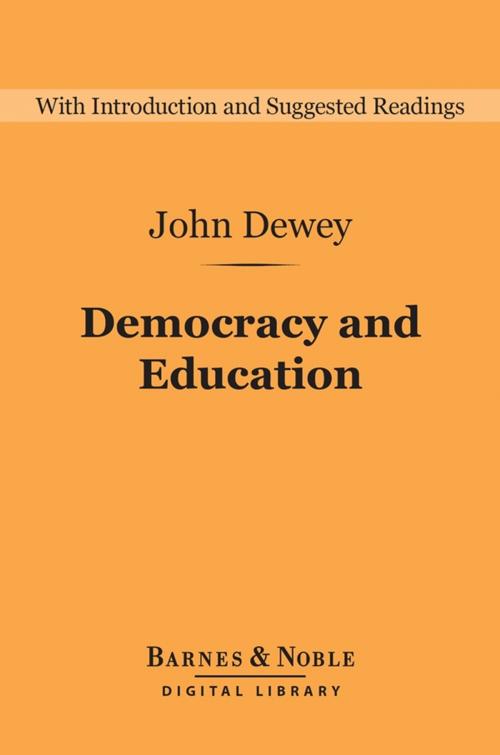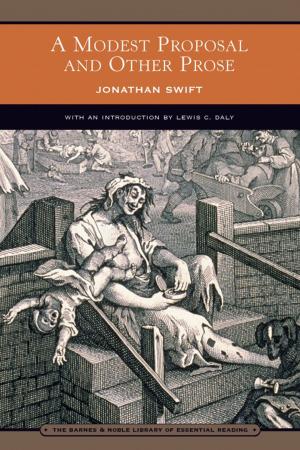Democracy and Education (Barnes & Noble Digital Library)
Nonfiction, Reference & Language, Education & Teaching| Author: | John Dewey | ISBN: | 9781411467736 |
| Publisher: | Barnes & Noble | Publication: | March 13, 2012 |
| Imprint: | Barnes & Noble | Language: | English |
| Author: | John Dewey |
| ISBN: | 9781411467736 |
| Publisher: | Barnes & Noble |
| Publication: | March 13, 2012 |
| Imprint: | Barnes & Noble |
| Language: | English |
This edition includes a modern introduction and a list of suggested further reading.
Since its publication in 1916, John Dewey's Democracy and Education has been a classic in the philosophy of education. Democracy and Education's enduring strength lies in Dewey's extraordinary ability to instill the dynamics of a changing nation and world into his Experimentalist philosophy. Not only did the book examine education in a changing world, but it analyzed the relationships between society and education.
As America shifted from an agricultural nation to a technological society, Dewey seized on this transformation as a challenging opportunity to bridge and integrate the larger world context with the smaller setting of changing communities, neighborhoods, and schools. Democracy, for Dewey, as a pragmatic way of life was free of the often-proclaimed eternal verities and absolutes that impeded open-ended experimental inquiry. No subject, custom, or value was so sacrosanct that it could not be reconstructed, if necessary.
As America shifted from an agricultural nation to a technological society, Dewey seized on this transformation as a challenging opportunity to bridge and integrate the larger world context with the smaller setting of changing communities, neighborhoods, and schools. Democracy, for Dewey, as a pragmatic way of life was free of the often-proclaimed eternal verities and absolutes that impeded open-ended experimental inquiry. No subject, custom, or value was so sacrosanct that it could not be reconstructed, if necessary.
This edition includes a modern introduction and a list of suggested further reading.
Since its publication in 1916, John Dewey's Democracy and Education has been a classic in the philosophy of education. Democracy and Education's enduring strength lies in Dewey's extraordinary ability to instill the dynamics of a changing nation and world into his Experimentalist philosophy. Not only did the book examine education in a changing world, but it analyzed the relationships between society and education.
As America shifted from an agricultural nation to a technological society, Dewey seized on this transformation as a challenging opportunity to bridge and integrate the larger world context with the smaller setting of changing communities, neighborhoods, and schools. Democracy, for Dewey, as a pragmatic way of life was free of the often-proclaimed eternal verities and absolutes that impeded open-ended experimental inquiry. No subject, custom, or value was so sacrosanct that it could not be reconstructed, if necessary.
As America shifted from an agricultural nation to a technological society, Dewey seized on this transformation as a challenging opportunity to bridge and integrate the larger world context with the smaller setting of changing communities, neighborhoods, and schools. Democracy, for Dewey, as a pragmatic way of life was free of the often-proclaimed eternal verities and absolutes that impeded open-ended experimental inquiry. No subject, custom, or value was so sacrosanct that it could not be reconstructed, if necessary.















